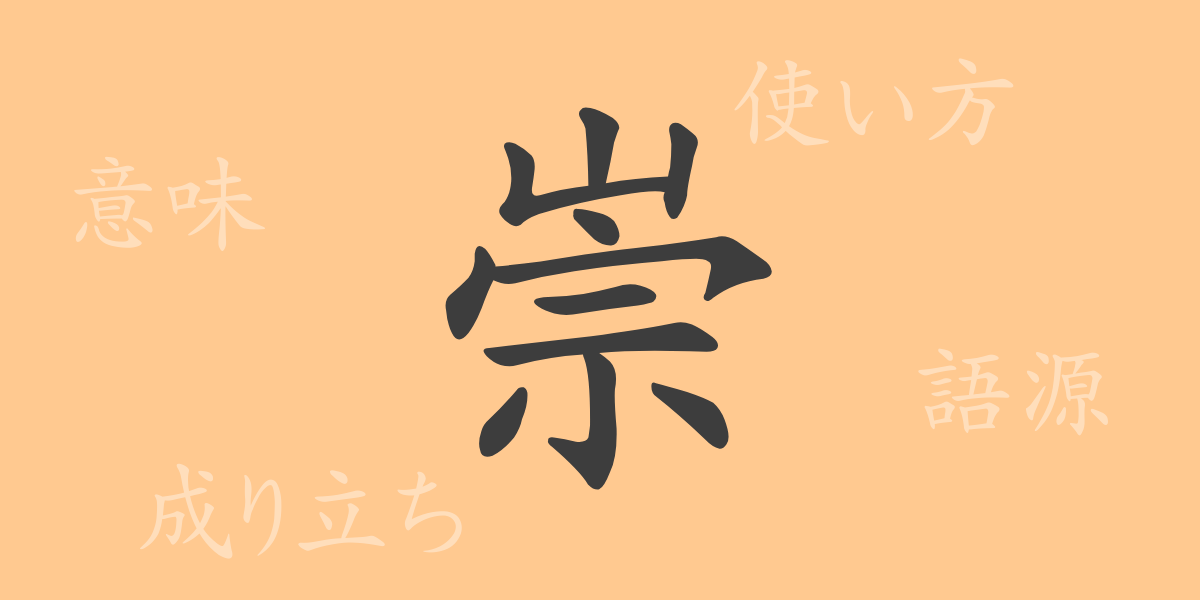The beauty of Japanese lies not only in its sound but also in its delicate characters, each with its own rich history and meaning that contribute to a deeper understanding of Japanese culture. The kanji ‘崇’ (スウ) is not commonly encountered in everyday life, yet it holds significant value through its form and meaning. This article will explore the origins, usage, and profound depth of the kanji ‘崇’, delving into its associated expressions and the cultural significance it holds.
Origins of 崇
The kanji ‘崇’ originated in ancient China, symbolizing high mountains or piled earth. It combines ‘尊’ (respect) with ‘丵’ (lush), reflecting the reverence for high or elevated things. Over time, this symbol has evolved to represent respect, reverence, and worship, deeply embedding itself in Japanese usage to express veneration towards certain people or values.
Meaning and Usage of 崇
‘崇’ primarily conveys meanings of reverence, such as ‘to adore’ or ‘to worship’. It is used to express deep respect or reverence towards someone or something considered highly honorable or sacred. For example, ‘崇高’ (すうこう) describes something that is highly noble, and ‘崇敬’ (すうけい) indicates profound reverence.
Readings, Stroke Count, and Radical of 崇
The kanji ‘崇’ is rich in detail, from its readings to its structural components:
- Readings: On’yomi ‘スウ’, Kun’yomi ‘あが.める’.
- Stroke Count: 11 strokes.
- Radical: ‘山’ (mountain), symbolizing the mountainous part on the left side of the kanji.
Phrases and Idioms Using 崇
The character ‘崇’ is found in several idiomatic expressions and phrases, reflecting its profound implications:
- 崇敬 (すうけい): Deep respect or veneration.
- 崇拝 (すうはい): Worship or adoration, often in a religious context.
- 崇高 (すうこう): Supreme nobility or loftiness, describing something exalted or dignified.
Conclusion on 崇
Each kanji in Japanese is alive with history and culture, and ‘崇’ is no exception. Used to express reverence and worship, it showcases the richness of Japanese expressions. Although ‘崇’ may not frequently appear in daily conversation, encountering words or phrases that include this kanji offers a moment to reflect on the history and meaning behind it, revealing the beauty and power of the Japanese language.

























